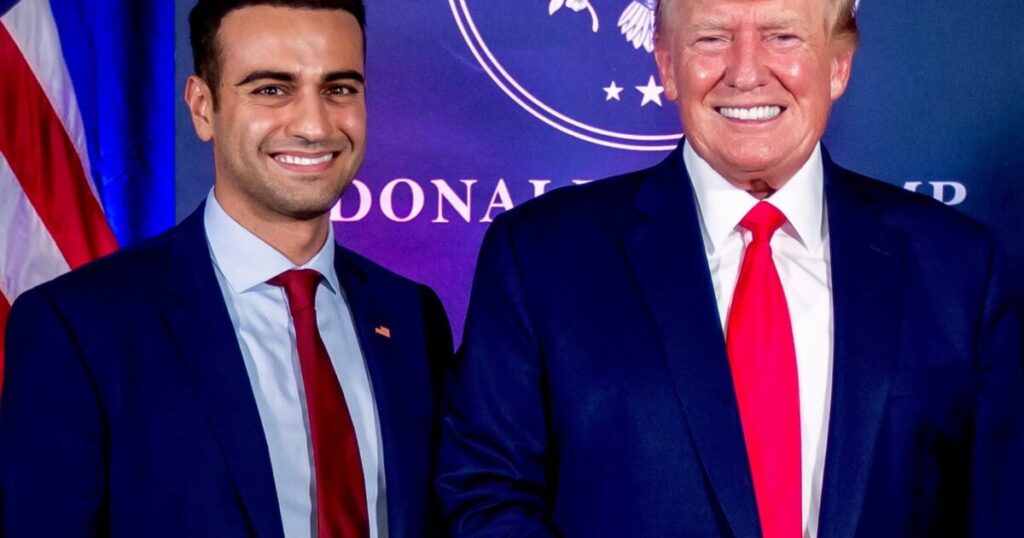In a significant political victory, Abraham Hamadeh has been declared the winner of Arizona’s 8th Congressional District, defeating Democrat Gregory Whitten. Endorsed by former President Donald Trump, Hamadeh expressed his gratitude to Arizona in an X post, stating, “Thank you Arizona! Let’s get to work.” This election outcome is particularly noteworthy as it follows Hamadeh’s narrow defeat in the 2022 Attorney General race, where he lost by a mere 280 votes. His previous campaign was marred by voting machine failures in Maricopa County, which resulted in lengthy wait times that disenfranchised many Republican voters. Unlike in 2022, when a judge rejected an RNC request to extend voting hours due to these issues, the 2024 election saw a judge approve a similar extension in blue Apache County due to fewer printer malfunctions, marking a shift in judicial response to electoral challenges.
The voter disenfranchisement faced by Hamadeh and other Republicans in the past election cycle has garnered attention, with claims of thousands being forced to use provisional ballots due to voter registration errors. The former Secretary of State, Katie Hobbs, allegedly concealed this information during the legal challenges to Hamadeh’s previous election losses. After overcoming these obstacles in the 2024 election, Hamadeh secured over 55% of the vote, sending a clear message to Washington that voters are ready for change. He conveyed his determination to prioritize the interests of the constituents and to reclaim America’s greatness, emphasizing a commitment to tackling critical issues such as illegal immigration, inflation, and fiscal accountability in D.C.
In his victory speech, Hamadeh continued to position himself as a champion for the residents of Arizona, asserting that he would be a fierce advocate for the values that drove his campaign. Declaring the end of “weak leadership” in Congress, he vowed to fight against what he termed a political elite that has compromised the country’s integrity. His campaign, characterized as a grassroots movement, was supported by an amalgamation of veterans, patriots, and everyday Arizonans who seek effective governance that prioritizes American citizens’ needs. Hamadeh highlighted his military background and legal experience as assets in his intended role as a congressman, pledging to address core issues affecting local families.
Hamadeh’s priorities include securing the U.S.-Mexico border, reducing inflation, defending the Second Amendment rights of citizens, and restoring accountability within federal institutions. His campaign’s messaging resonated with voters who are disillusioned with the current administration’s policies, firmly positioning him as a bold alternative to established political norms. He framed the fight ahead as not merely a political battle, but a quest to defend the values that define America and restore its place as a global leader. Hamadeh’s enthusiasm for representing Arizona in Congress reflects a broader narrative populating the current political landscape, where candidates are increasingly leaning into strong, value-based rhetoric.
Meanwhile, the election atmosphere in Arizona also showcased President Trump’s dominance in the state as he prepared to secure its 11 Electoral votes in the Presidential race. His continued appeal among conservative voters is evident, especially as other Trump-endorsed candidates, like Kari Lake, remain competitive in their respective races. Lake’s close race against Democrat Ruben Gallego for the Senate exemplifies the ongoing political battle in Arizona, reflecting the high stakes at play for both parties as they navigate an increasingly polarized electorate. The Gateway Pundit is committed to tracking the results of Lake’s Senate race, further underscoring the interconnectedness of state and national politics in this election cycle.
As Hamadeh begins his tenure in Congress, his commitment to the constituents of Arizona’s 8th District will be closely scrutinized. The broader implications of his election resonate beyond his district, representing a shift in the Republican agenda and strategy at a time when conservative politics are facing significant challenges from the Democratic establishment. His ascent, alongside Trump’s influence, encapsulates a desire for a more aggressive and vocal representation of conservative values in Washington. Hamadeh’s determination to disrupt the status quo echoes a sentiment deeply rooted in a segment of the American populace that feels overlooked and underserved by current leadership.
In summary, Abe Hamadeh’s election victory marks a pivotal moment in Arizona politics, emphasizing a shift toward a more assertive and right-leaning representation. His campaign was characterized by strong local support, direct messaging on key issues, and alignment with Trump’s America First agenda. As he prepares to take office, the implications of his win extend beyond his district and into the national political landscape, highlighting the ongoing struggle between entrenched political powers and a growing populist movement within the Republican Party. The outcome of other races in Arizona, particularly Kari Lake’s, will further illuminate the dynamics at play in this crucial battleground state, signifying the importance of strong local candidates in shaping the future of American politics.

